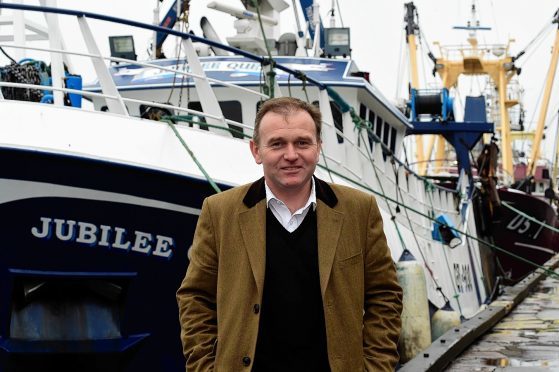UK Fishing Minister George Eustice has insisted there is no chance of fishing rights being traded away in Brexit negotiations with the European Union.
There is concern within the industry, as well as among Scottish politicians including Fisheries Secretary Fergus Ewing, that fishing interests could be deemed “expendable”.
Those fearing the worst point to what happened in 1973, when the UK negotiated its way into the European Common Market and then prime minister Ted Heath was accused of “selling out” the industry to secure entry.
Since then, the much-despised Common Fisheries Policy has allowed member states equal access to each other’s waters.
Mr Eustice said the process of quitting the EU, from a fishing point of view, started with a “clear legal base line”.
He added: “It is a very established principle that an independent country has control over its exclusive economic zone out to 200 (nautical) miles.
“That gives us a very clear starting point when we get down to negotiating Brexit,” the minister said, adding there would still be issues “surrounding access and sharing arrangements” to resolve.
On another issue of current concern, Mr Eustice said the UK Government was currently studying a variety of options for filling a near-£90million funding hole after the UK exits the EU.
The European Maritime Fisheries Fund (EMFF) supports fishers in the transition to sustainable fishing and helps coastal communities diversify their economies.
Mr Eustice said the UK Government was committed to replacing the six-year EU programme with its own scheme, but it was too early to say what shape that would take or how much cash there would be.
Recent payouts under EMFF, which runs until 2020, include a £5million contribution which has paved the way for Peterhead harbour’s £49million redevelopment.
In other Brexit-linked developments for fishing, the government is being pressed by industry chiefs and politicians north of the border to make it easier for migrant workers to crew fishing boats off the west coast.
Mr Ewing said “clarity over the rules” for migrant workers was needed as quickly as possible in order to prevent severe crew shortages.
Scottish Government figures suggest that as many as one in five fishers in Scotland are from four countries outside the European Economic Area – the Philippines, Ghana, Sri Lanka and Belarus.
